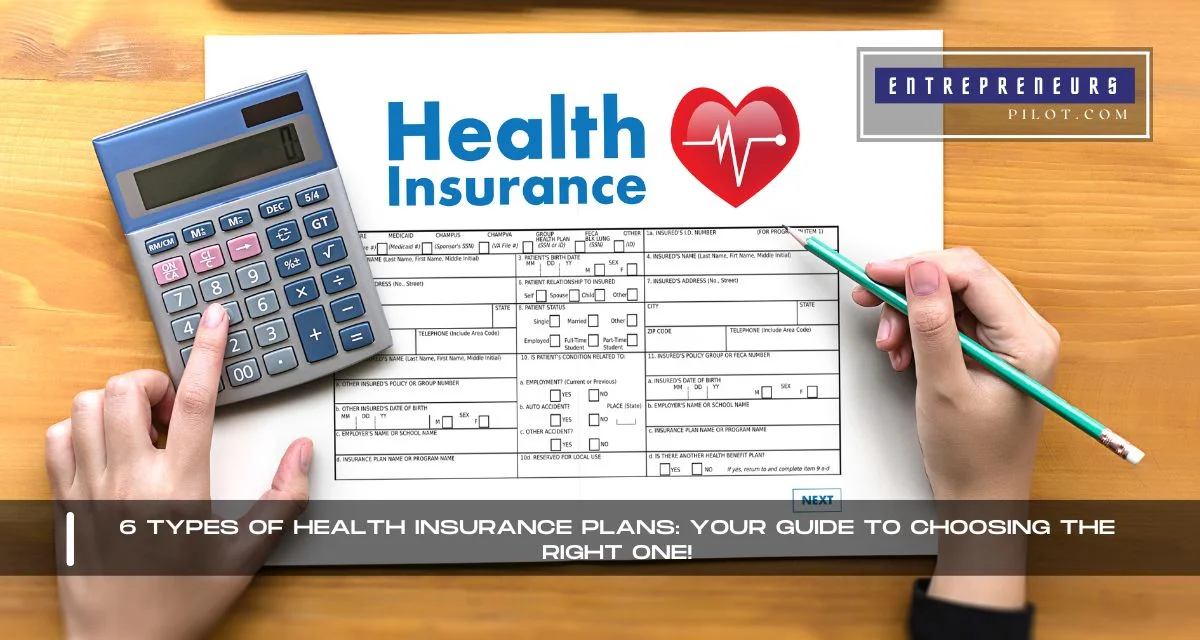Introduction
Navigating the world of health insurance can feel like trying to find your way through a maze without a map. But fear not! Understanding the Types Of Health Insurance Plans available to you is the first step toward making an informed decision that aligns with your health needs and budget. Whether you’re flying solo, managing health care for a family, or somewhere in between, there’s a plan out there with your name on it.
Ready to dive in? This guide breaks down the six main types of health insurance plans, helping you to choose the right one for your unique situation. Let’s embark on this journey together and demystify the options, ensuring you’re equipped to make the best choice for your health and well-being.
Table of Contents
HMO: Health Maintenance Organization Plans
Health Maintenance Organization (HMO) plans are like having a home base in the world of health care. With an HMO, you’ll choose a primary care physician (PCP) who becomes your go-to for all things health-related. Need a specialist? Your PCP will guide you to the right person within your network. The catch? You’re mostly limited to doctors within the HMO network, which keeps costs down but can limit your flexibility. It’s perfect for those who prioritize cost savings and don’t mind having a designated pathway for care.
PPO: Preferred Provider Organization Plans
Preferred Provider Organization (PPO) plans offer a bit more freedom. You can see any doctor or specialist without needing a referral, including those outside of your network—though it’ll cost you less to stick within it. PPOs are great for those who value flexibility and are willing to pay a bit more for the privilege. If you like the idea of navigating your health care with fewer restrictions and don’t mind a higher premium, a PPO might be your match.
- For Expert Financial Insights And Guidance, You Can Visit Our Sister Site – ArabsGeek.com Now!
- Curiosity Piqued? Dive Into the Most Captivating Financial Content by Visiting Our Homepage!
- Unlock Exclusive Business Opportunities! 🚀 Connect with Us Now at our Email: [email protected]!
EPO: Exclusive Provider Organization Plans
Exclusive Provider Organization (EPO) plans strike a balance between HMOs and PPOs. You have the freedom to see any specialist within the network without a referral, but, like HMOs, out-of-network care isn’t covered except in emergencies. EPOs are ideal for those who want the ease of direct access to specialists without the need for referrals and are comfortable with a more limited provider network.
POS: Point of Service Plans
Point of Service (POS) plans blend elements of HMOs and PPOs. You’ll choose a primary care physician who will refer you to other network providers. However, you also have the option to see out-of-network doctors, albeit with higher out-of-pocket costs. POS plans appeal to those who appreciate the structured care coordination of an HMO but want the option to go outside the network when necessary.
HDHP: High Deductible Health Plans with or without a Health Savings Account (HSA)
High Deductible Health Plans (HDHPs) are for the budget-conscious who don’t frequent the doctor’s office. They come with higher deductibles, but significantly lower monthly premiums. Many HDHPs are compatible with Health Savings Accounts (HSAs), allowing you to save money pre-tax for medical expenses. This plan is a smart choice for young, healthy individuals or anyone comfortable with a higher deductible in exchange for lower monthly payments and tax advantages.
Catastrophic Health Insurance Plans
Designed primarily for people under 30 or those with a hardship exemption, Catastrophic Health Insurance Plans offer protection against worst-case scenarios. They have low monthly premiums and a very high deductible, covering you once you’ve spent a significant amount on health care. These plans are an economical safety net, ensuring you’re not left financially burdened by serious medical emergencies.
Conclusion | Types Of Health Insurance Plans
Choosing the right health insurance plan is a critical decision that impacts your access to care and financial well-being. By understanding the distinct features of each plan type, you can select a plan that best suits your health needs and financial situation. Whether you value flexibility, cost savings, or a balance of both, there’s a health insurance plan out there for you. Armed with this knowledge, you’re now better prepared to navigate the health insurance landscape and make an informed decision that supports your health and budget.
Frequently Asked Questions
01. How do I know if a plan’s network includes my current doctors?
Check the insurance plan’s provider directory or call your doctors directly to see if they accept the plan.
02. Can I switch health insurance plans if my needs change?
Yes, you can switch during the open enrollment period each year, or if you experience a qualifying life event like a marriage or job change.
03. Are prescription medications covered under all health insurance plans?
Most plans cover prescription drugs, but coverage can vary. Check the plan’s formulary to see if your medications are covered and at what cost.
04. What happens if I go to a doctor outside of my network?
Depending on your plan type, you may have to pay more or the full cost of care if you see an out-of-network provider.
05. Is it better to have a lower deductible and higher premium, or higher deductible and lower premium?
It depends on your healthcare needs and financial situation. A lower deductible and higher premium might be better if you frequently visit doctors or have ongoing medical needs. A higher deductible and lower premium might be more cost-effective if you’re generally healthy and rarely need medical care.











